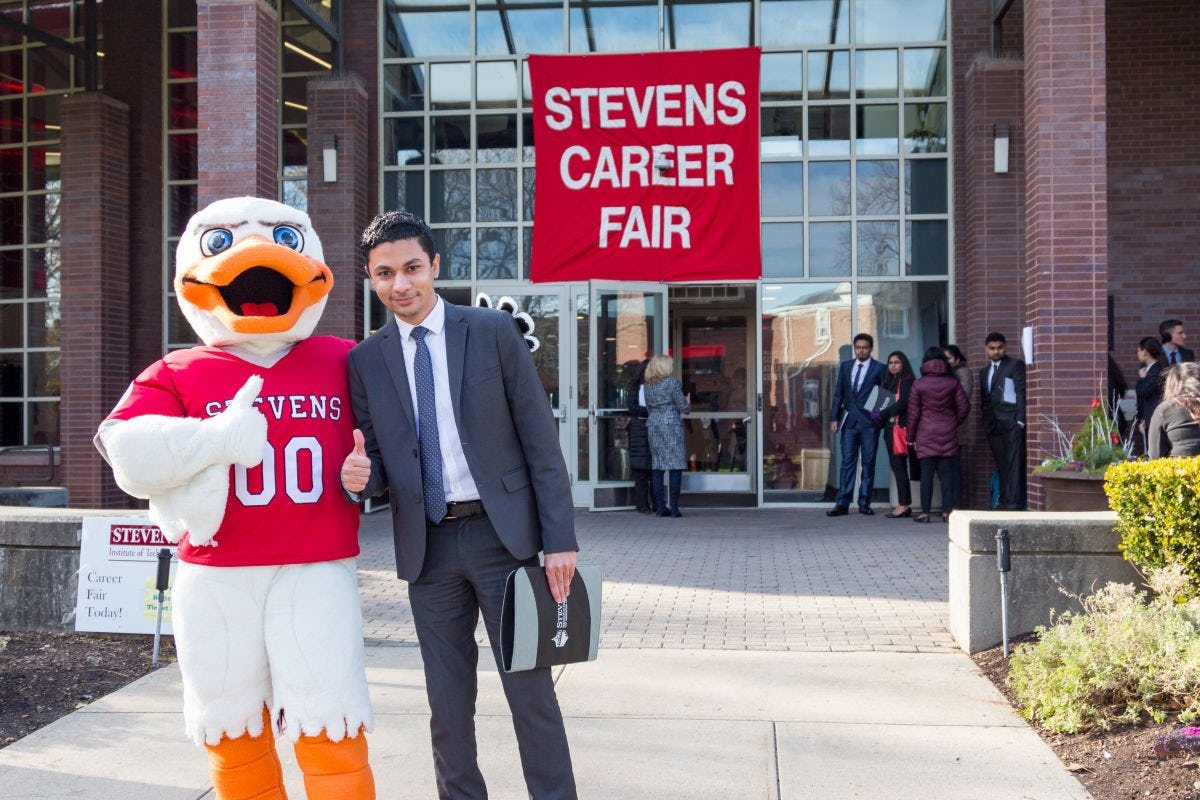
Bachelor's Degree in Engineering - Optical Engineering Concentration
Combine your love of physics and engineering to become an innovator in the next wave of modern optical technologies.
Optics is used in everyday technologies, from the optical fibers that carry all of the information of the internet to the displays, cameras, and optical sensors in modern smartphones, robots, and self-driving vehicles making optical engineering a growing field.
Optical engineering – also known as photonics engineering – is a unique area of study that merges the fields of engineering and physics. The optical engineering concentration at Stevens provides a broad foundation of core engineering skills in foundational subjects ranging from circuits to thermodynamics, coupled with in-depth training in the design of optical instrumentation, lasers, metrology, optical communications technology, and modern photonic devices.
Faculty in the Department of Physics at Stevens have a strong background in optics. As a student, you will learn optical engineering from globally renowned experts – including two fellows of the Optical Society of America and an editor of Optics Letters – and gain hands-on experience in the department’s three state-of-the-art optics teaching labs.
The Stevens Advantage: Hands-On Learning, Real World Experience
At Stevens, you’ll learn to think like an engineer. Our design-focused curriculum features a hands-on course every semester that will instill you with broad, foundational knowledge, the complete fundamentals of engineering, and entrepreneurial thinking. Learn more about what makes an engineering education from Stevens a unique experience:
The Design Spine: a unique, design-focused, hands-on course every semester that incorporates entrepreneurial thinking and experiential learning, culminating with Senior Design, a team capstone project working on prototypes for real business problems, potentially in collaboration with a real company
Innovation Expo: an exciting design and entrepreneurship competition where students showcase their senior design prototypes and pitch business ideas
Engineering Cooperative Education Program: nearly 30% of all engineering students participate in Stevens’ Cooperative Education Program where you get on-the-job experience working for real companies
State-of-the-Art Research Labs and Facilities: build, tinker and test your designs in Stevens' MakerCenter, Prototype and Object Fabrication Lab, or numerous other research facilities
Undergraduate Research Opportunities: our research-oriented curriculum gives you in-the-lab experience while you're still an undergraduate student
More opportunities for Stevens undergraduate students include:
Double count undergraduate course credits toward a graduate degree and earn your master's faster – in just five years through Stevens' Accelerated Master's Program >
See what it's like to be a mechanical engineer at Stevens by visiting the links below.
An ABET Accredited Program
The Bachelor of Engineering in Engineering program is accredited by the Engineering Accreditation Commission of ABET, https://www.abet.org, under the commission’s General Criteria and the Program Criteria for Engineering, General Engineering, Engineering Physics, Engineering Science and Similarly Named Engineering Programs.
Mission
The Bachelor of Engineering in Engineering program's mission is to provide a broad-based education and depth within a selected concentration to prepare students in technical and scientific fundamentals that will enable them to have a substantial impact in a specific technology area.
Program Educational Objectives
The engineering program has established the following educational objectives:
Graduates of our program will be recognized by their peers as innovators and leaders in their field by leveraging their strong technical basis to continuously increase their skills and knowledge in their area of expertise.
Graduates of our program will have a positive impact on their workplace through multidisciplinary collaboration, teamwork and leadership.
Graduates of our program effectively navigate important contextual factors in their careers, including the historical, regulatory, political, policy, economic, ethical and public relations aspects of problems in various engineering disciplines.
Student Outcomes
By the time of graduation, students in the engineering program will have:
An ability to identify, formulate, and solve complex engineering problems by applying principles of engineering, science, and mathematics
An ability to apply engineering design to produce solutions that meet specified needs with consideration of public health, safety, and welfare, as well as global, cultural, social, environmental, and economic factors
An ability to communicate effectively with a range of audiences
An ability to recognize ethical and professional responsibilities in engineering situations and make informed judgments, which must consider the impact of engineering solutions in global, economic, environmental, and societal contexts
An ability to function effectively on a team whose members together provide leadership, create a collaborative and inclusive environment, establish goals, plan tasks, and meet objectives
An ability to develop and conduct appropriate experimentation, analyze and interpret data, and use engineering judgment to draw conclusions
An ability to acquire and apply new knowledge as needed, using appropriate learning strategies
A fundamental knowledge and an appreciation of the technology and business processes necessary to nurture new technologies from concept to commercialization
Putting You on Track for Professional Success
Optical Engineering Careers
The engineering bachelor's program with a concentration in optical engineering develops in-demand knowledge and skills to put you on track for career success. Not only will you be prepared for careers in optics and photonics, but you'll have the breadth and perspective to understand engineering and technological problems applicable to a variety of disciplines.
The knowledge and skills gained in the optical engineering concentration enables you to pursue careers in the many fields that are heavily reliant on optical technology including aerospace, telecommunications, manufacturing, renewable energy, medicine, and defense, as well as research, entrepreneurship, and public service. Career opportunities as an optical engineer include:
Optical Communications and Networking
Optical Instrumentation Design
Design and Manufacturing of Photonic Devices
Metrology and Optical Sensor Design
Laser Design and Engineering
Biomedical Optics
Research and Development
Learn more about careers in physics and optical engineering >
A Tech Forward Education
Undergraduate Programs Facts & Statistics
The Job Market for Physics Degrees
Related Programs
Bachelor's Degree in Physics
Immerse yourself in applied physics research and quantum information sciences in the physics bachelor’s program at Stevens.
Bachelor Degree in Mechanical Engineering
Get the in-depth knowledge and design skills you need for a successful career in engineering from the first university in the U.S. to offer a mechanical engineering degree.





